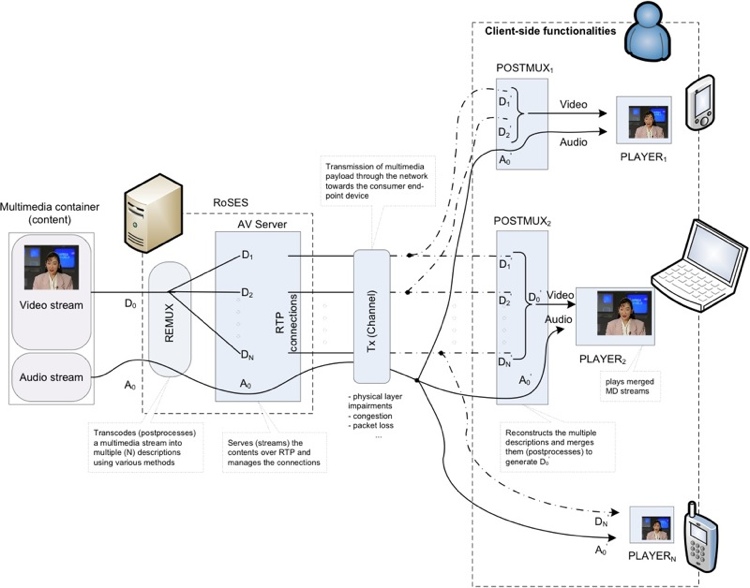
|
iMedia Application Laboratory |

|
The recent evolution of the coding and transmission technologies for multimedia has rendered the realization of the so-called "triple-play" services possible, in which a single, packet-based converged network is used to provide Internet connectivity, telephony and TV services in a ubiquitous setting.
However, while the advances in hardware
technologies have followed a fast pace towards the provisioning of
aforementioned services (including mobility) to consumers with high
quality, the utilization of such variety of contents (coded in different
qualities and standards) through the Internet, or in general an architecture
based on IP protocol, turns out to be yet an open problem, above all
in the domain of IPTV services. Although various software solutions
exist to manage the streaming of these multimedia flows, such solutions
are typically integrated suboptimally and thus introduce several
challenging problems. For instance, the multimedia servers currently
available renders difficult to support heterogenous clients (ranging
from cellular telephones, computers, to dedicated set-top boxes) or
variable conditions of networks (in terms of available bitrates,
physical layer impairments, packet losses, variable delay, etc.). In
particular, the proliferation of broadband wireless networks exacerbates
these challenges. However, the capabilities to alleviate those issues are
crucial to support QoS for service support and provisioning. Moreover, the
support for complex and intelligent multimedia applications that can be
loaded and executed on diverse set of clients is still in embryonic
state and necessitates difficult compromises between performance and
flexibility.
Based on these considerations, the Department of Information
Science and Engineering (DISI) of the University of Trento has recently
activated a group of researchers with leading-edge interdisciplinary
competences in ICT, constituting the iMedia Application Lab. One of the
main research topics of our lab is audio/video streaming and IPTV.
Back to index
The Robust Streaming Environment (RoSE) Project has been started in order to be a catalyst of the activities carried in DISI and other external partners on multimedia networks, devices and services. RoSE is focused on:

Deliverables: